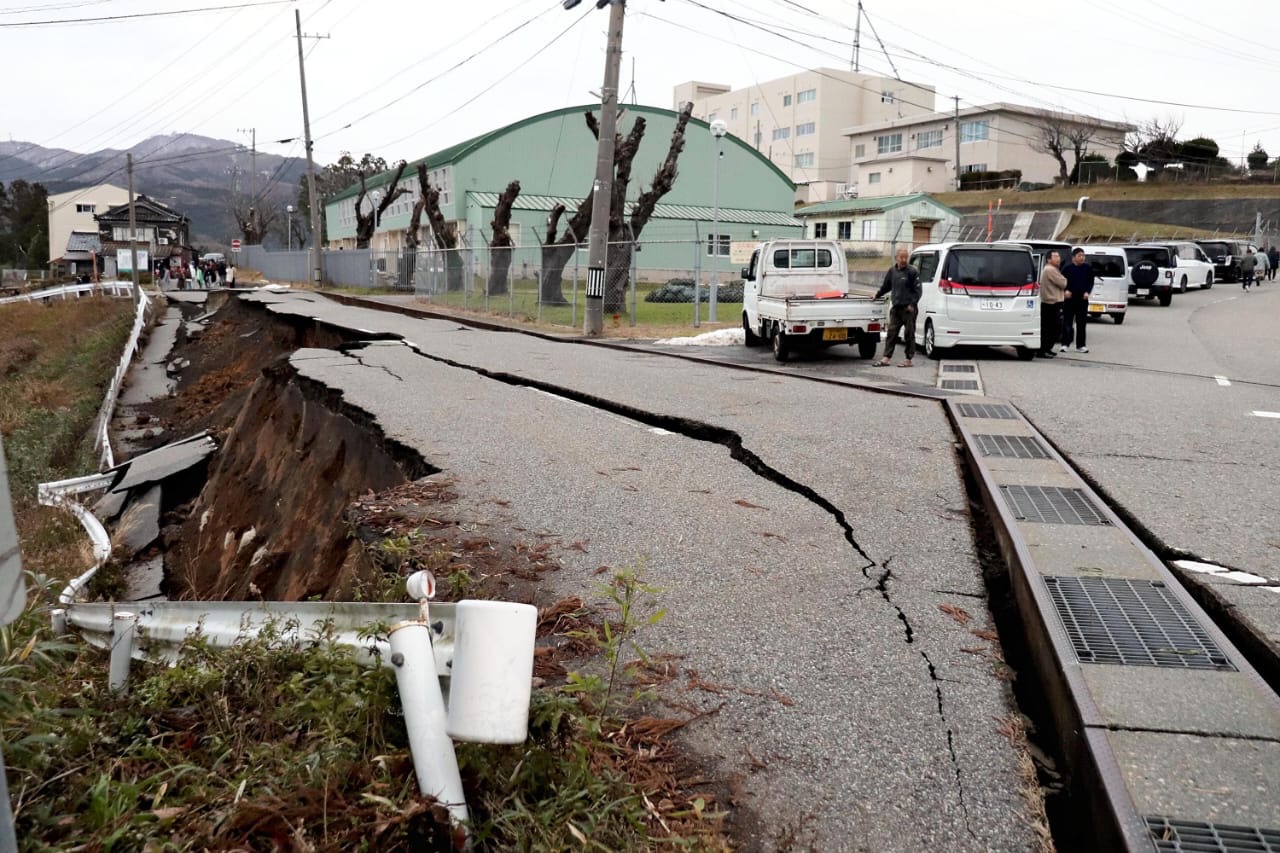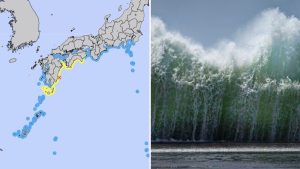News
Japan Earthquake and Tsunami Alert Issued After Kyushu Quake

The Japan Meteorological Agency issued its first-ever warning about a high risk of a massive earthquake along the Pacific coast after a quake hit the southern island of Kyushu on Thursday. This quake triggered a tsunami warning, but no deaths or major damage have been reported.
The agency warned that the risk of a huge earthquake in the Nankai Trough area is higher than usual. However, this does not mean that an earthquake will definitely happen soon. Public broadcaster NHK reported that Prime Minister Kishida canceled his overseas trip to prepare for any possible emergencies.
READ ALSO:
The agency explained that if a major earthquake does occur, it could cause strong shaking and large tsunamis. The Nankai Trough, a subduction zone between two tectonic plates in the Pacific Ocean, has experienced massive earthquakes in the past.
The Nankai Trough stretches 800 kilometers (500 miles) from Shizuoka, west of Tokyo, to the southern tip of Kyushu. It has been the site of destructive earthquakes, known as “megathrust quakes,” of magnitude 8 or 9 every 100 to 200 years. These quakes often come in pairs and have caused dangerous tsunamis along Japan’s southern coast.
In 1707, the entire Nankai Trough ruptured at once, causing Japan’s second-most powerful earthquake on record. The most powerful was the March 2011 earthquake along the northeast coast, which triggered a tsunami that killed over 18,000 people and led to the Fukushima Daiichi nuclear disaster.

The Japan Meteorological Agency issued its first-ever warning about a high risk of a massive earthquake along the Pacific coast after a quake hit the southern island of Kyushu on Thursday.
Although predicting the exact timing of earthquakes is impossible, government experts estimate a 70% to 80% chance of a megaquake occurring in the Nankai Trough within the next 30 years. In the worst-case scenario, such a disaster could kill 300,000 people and cause up to $13 trillion in financial damage.
Geologists Kyle Bradley and Judith A. Hubbard noted in their Earthquake Insights newsletter that while the history of great earthquakes in the Nankai Trough is concerning, there is no need for public panic.
They emphasized that there is only a small chance that Thursday’s quake was a foreshock of a larger event, and even when the risk of a second earthquake is higher, it is still generally low.
The agency warned that the risk of a huge earthquake in the Nankai Trough area is higher than usual. However, this does not mean that an earthquake will definitely happen soon. Public broadcaster NHK reported that Prime Minister Kishida canceled his overseas trip to prepare for any possible emergencies.
READ ALSO:Former CAF President Issa Hayatou Passes Away at 77
The agency explained that if a major earthquake does occur, it could cause strong shaking and large tsunamis. The Nankai Trough, a subduction zone between two tectonic plates in the Pacific Ocean, has experienced massive earthquakes in the past.
The Nankai Trough stretches 800 kilometers (500 miles) from Shizuoka, west of Tokyo, to the southern tip of Kyushu. It has been the site of destructive earthquakes, known as “megathrust quakes,” of magnitude 8 or 9 every 100 to 200 years. These quakes often come in pairs and have caused dangerous tsunamis along Japan’s southern coast.
In 1707, the entire Nankai Trough ruptured at once, causing Japan’s second-most powerful earthquake on record. The most powerful was the March 2011 earthquake along the northeast coast, which triggered a tsunami that killed over 18,000 people and led to the Fukushima Daiichi nuclear disaster.
Although predicting the exact timing of earthquakes is impossible, government experts estimate a 70% to 80% chance of a megaquake occurring in the Nankai Trough within the next 30 years. In the worst-case scenario, such a disaster could kill 300,000 people and cause up to $13 trillion in financial damage.
Geologists Kyle Bradley and Judith A. Hubbard noted in their Earthquake Insights newsletter that while the history of great earthquakes in the Nankai Trough is concerning, there is no need for public panic.
They emphasized that there is only a small chance that Thursday’s quake was a foreshock of a larger event, and even when the risk of a second earthquake is higher, it is still generally low.

















